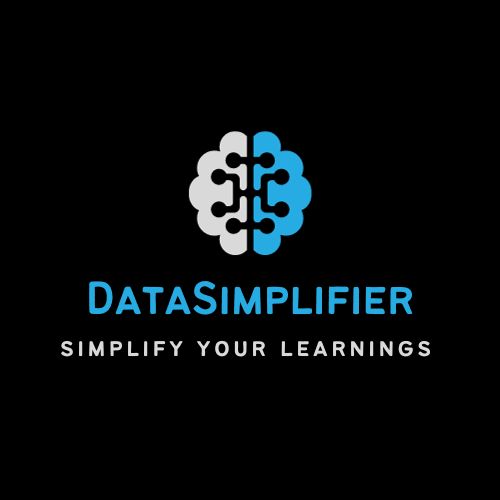Introduction: Can AI Replace Data Analysts? The Changing Landscape of Data Science
Can AI replace data analysts?: Data analysis and artificial intelligence have changed the very fabric of various sectors that were once operated by humans alone. The question has surfaced on the minds of many professionals and students in the rapidly transforming world of data science: “Can AI replace data analysts?” AI has promised and lived up to one great expectation of transforming decision-making within a business. But what does this mean for the data analyst?

The truth is, data analysts will not be displaced by AI in the near future, but the role will be significantly changed. AI can automate routine tasks such as data cleaning and processing as well as visualization and help free data analysts from such taskables to focus on more complex and strategic aspects of their job. This blog post explores how AI will impact data analysts, the skills you’ll need to stay relevant, and the future of data analysis in the age of AI.
AI and Data Analysis: A Collaboration, Not a Competition
While the fear of AI replacing jobs is prevalent in many industries, data analysts should see AI as a tool that enhances their capabilities rather than a threat. AI processes massive volumes of data in a minute fraction of the time that would be taken by a human being, still devoid of critical thinking and context supplied by human analysts. Here, AI is much of an addition to data analysts rather than a replacement.
AI is capable of performing routine and repetitive tasks like pattern search for a particular data set or running predictive models, but the human element would always prevail in understanding the broader context of the data and aligning those insights with business goals. This collaboration of human analysts with AI-powered tools creates more opportunities for analysts to participate at the strategic level rather than getting into mundane, manual tasks.
The Future of Data Analysis: Will AI Replace Data Analysts in the Future?
The day we ask, “Will AI replace the Data Analysts?,” one has to look at the bigger picture. Yes, AI is indeed making waves in data analysis, but the odds are that it will not oblige the role of a human analyst entirely. Instead, AI will bring about changes in the requirements needed to be successful in data analytics. That is when people adapt to the changing landscape, embrace new technologies, and add to their existing knowledge will all thrive in their careers.

What the future data analyst will be curious about is not so much whether they will be replaced by AI, but how they can best use AI to their advantage and in making their own capabilities more productive. Those who learn to use AI as an assistant rather than a threat will succeed in the marketplace; those who resist the winds of change will not compete as well.
Key Content
I. Context Setting: The Emerging Role of AI in Data Analytics
How AI Will Change the Data Analyst’s Role
Artificial Intelligence already plays a huge part in automating most parts of the data analysis process. Through AI tools, activities such as data cleaning, preparation, and processing, which used to take hours or days, are completed in just minutes. AI-driven platforms like TensorFlow, Apache Spark, and others already help businesses scale up data analytics and give them real-time insights, predictive analytics, and more.
AI has transformed several e-commerce, finance, and healthcare sectors, easily processing a huge volume of data within a given time frame. However, this does not mean that artificial intelligence is going to take away data analysts’ jobs; it simply means that data analysts will have to work in more strategic areas and become less dependent on raw information processing, making interpretations, developing insight, and therefore aligning the discovered insight with business strategies.

Automation and Its Impact on Data Analysts
By using AI-powered tools, routine tasks such as data cleaning, dealing with missing values, and even exploratory data analysis can be automated. One of the biggest time-savers and errors minimized is automation; however, it does not eliminate the need for humans to be involved. Data analysts need to check through all the outputs, understand the nuances of the data, and then draw conclusions about how those insights can actually be applied in real scenarios.
The automation can do basic report generation. It is the human analyst who can apply sense, interpret his findings, and present them as a basis for actual business decisions. Automation should be taken as an enabler to allow the data analyst more time for ‘doing’ instead of spending it on just mundane tasks.
II. Core Competencies Data Analysts Need to Survive in the Age of AI
Embrace AI and Machine Learning
Data analysts who want to remain one step ahead in terms of their profession should first begin with AI and machine learning techniques. The fundamental concepts of ML will enable them to properly understand the outcomes of an AI-driven analysis and use tools designed with AI proficiently. Besides, analysts who know how to build and train machine learning models will be able to build more complex and customized insights.
Even if you are not going to become an AI specialist, at least learn a basic machine learning algorithm, such as regression models, decision trees, and neural networks, so that you can use AI more effectively in your jobs.
Business Acumen and Strategic Thinking
While technical skills form an integral part, data analysts need to hone their business acumen. The AI tools can fetch mountains of data, but it is the analyst who interprets the findings in a manner that brings them in line with the strategic objectives of the company. Data analysts will become more relevant in relation to the kind of actionable insights they bring to inform decisions.
AI cannot substitute the creativity, problem-solving, and critical thinking skills of human analysts. Those people who are brilliant at such areas will remain non-replaceable to organizations who look to unlock the value of data.
III. Future of Data Science: Will AI Replace Data Scientists and Business Analysts?
AI and Data Science: Partnership, Not Replacement
Another domain that AI is causing to be heavily impacted is data science. AI can be useful in data analysis, but cannot be a replacement for a full-time data scientist. Data scientists mainly work on complex tasks, such as developing machine learning models, and understanding multiple facets of data, which then leads to making decisions based on a deep understanding of statistical methods and business needs.
The role of the data scientist in the future will change with the advent of AI. There is a need to combine domain expertise with AI tools to deliver optimal novel solutions and informed decisions. More of the heavy lifting will be done by AI to leave more time for data scientists to be concerned about strategic high-level thinking and creative problem-solving.
Business Analysts and AI: Collaboration is the Key
Similarly, business analysts will not be replaced by AI. Where AI may make things easy with data collection, analysis, and reporting, the business analyst will remain essential for interpretation and understanding the business side of things on a larger scale, plus strategic advice to the business. AI can create insights, but it is the business analyst who can connect the dots and provide actionable advice which drives business growth.

Conclusion
The Role of Data Analysts in the Age of AI
In conclusion, AI will not replace data analysts’ roles but alter how people function. Data analysts will be able to concentrate on high-level analysis, strategy, and decision-making, freeing up time because the repeated nature of tasks is taken care of by AI. AI has nothing to do with humans’ creative or problem-solving capabilities, or their contextual understanding. Rather, AI is a remarkable tool that can automate much of what has to be done in data analysis.
Upskilling and Adaptation
The use of AI will not make a data analyst obsolescent but rather force him or her to embrace new technological changes as either learning to use tools involving AI, understanding machine learning algorithms, and developing strategic thinking skills that will make the analyst valuable to the organization for even longer periods while people who resist the changes or fail to adapt become left in the evolution of the industry.
Join Our Community and Upgrade Your Career
You now have a good idea of the influence AI has on the data analysts. The next step would be to join our community so you can stay updated on what’s happening presently in trends or learn new job opportunities as well as other like minded people. We share our professional resources, updates about jobs, and relevant content on a regular basis in order to help advance your career.
And don’t forget to join our premium Telegram group, in which you’ll have a very supportive community of professionals who are eager to help each other succeed. All you need to do to get in is drop your telegram handle in the comments.
Remember how far you’ve come as you learn and grow in the field of data analysis. Good job! We are excited to have you with us in our community. Get ready to embrace the future of AI in data analytics.
AI Trends and their Power to Change : Best Guide
Share the post with your friends

1 thought on “Will AI Replace Data Analysts : Here is the Best Overview of it”